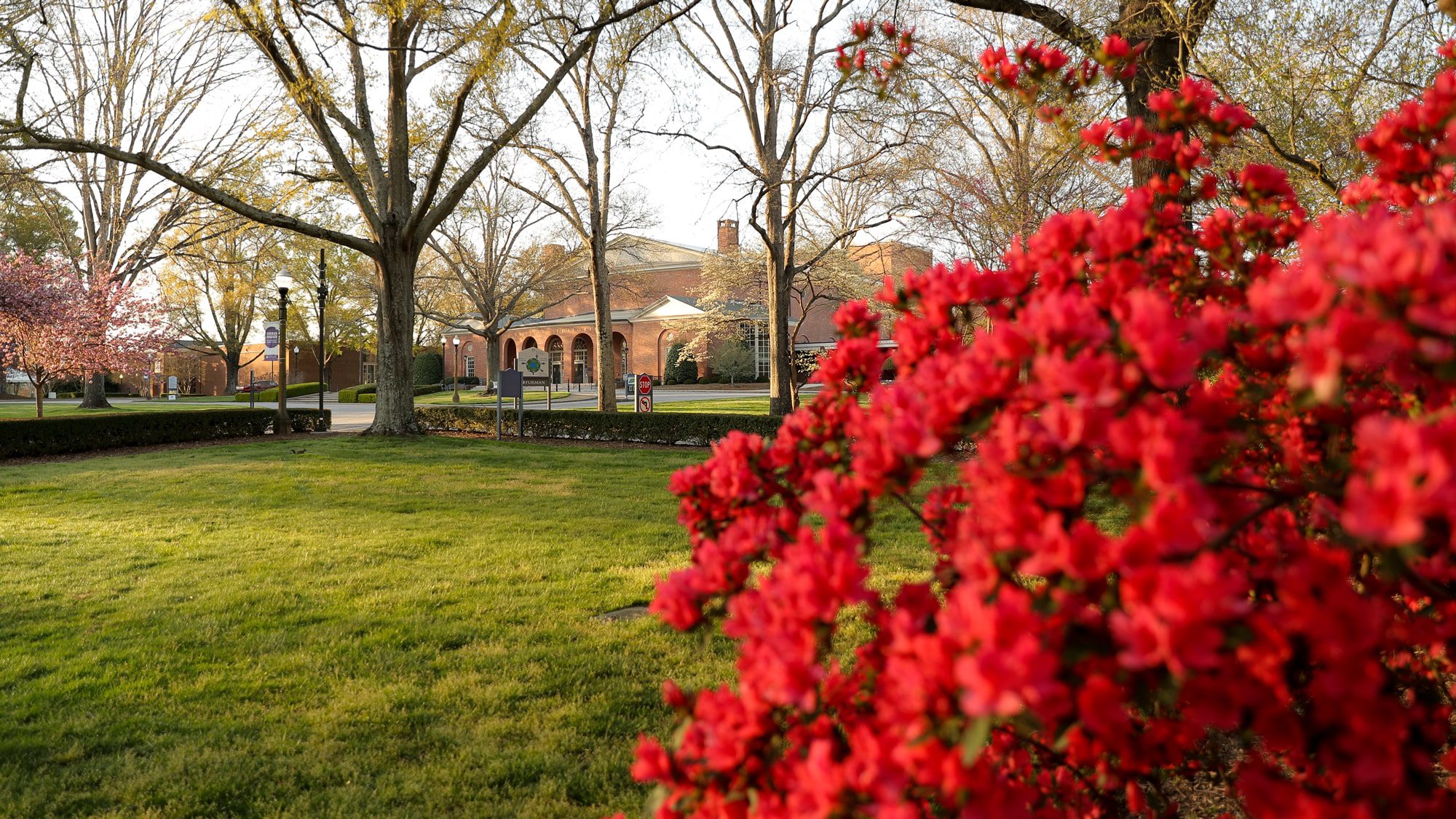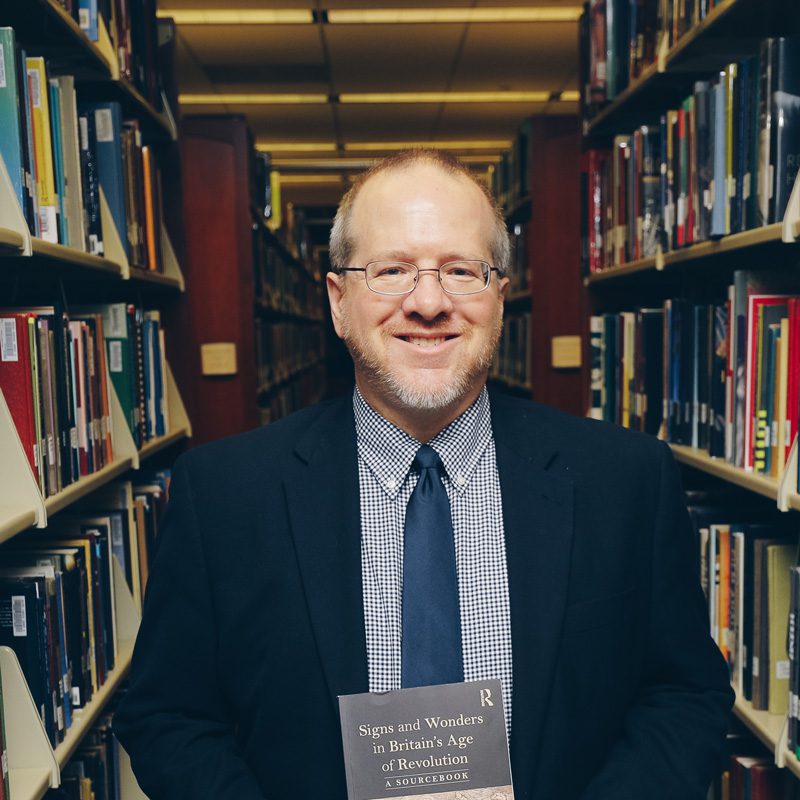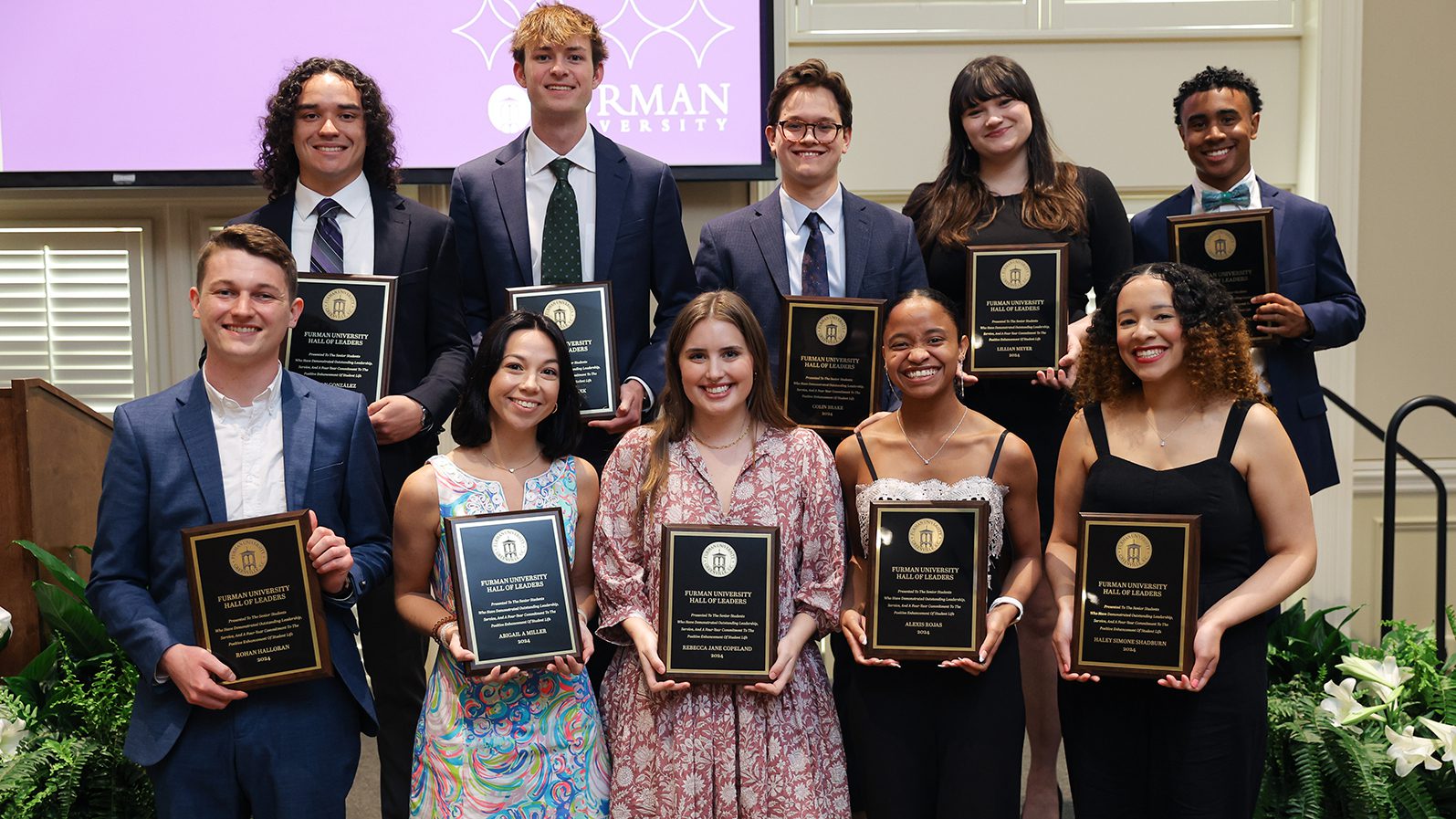Table of Contents
What is a humanities minor?
Firmly centered in the liberal arts and sciences, a humanities minor is a course of study that develops creative problem-solvers and independent thinkers who can view issues from diverse interdisciplinary angles. A humanities minor provides an intentional method for complementing a major area of study with courses that tap the classics, modern languages, English, history, communication studies, philosophy, religion, art history, music history, theatre history, political thought and more.
Why minor in humanities at Furman?
As a private liberal arts and sciences university, Furman provides an exceptional environment for multidisciplinary studies, allowing students to find connections between myriad areas of interest. The humanities minor includes course options from more than a dozen academic disciplines. Small class sizes give students greater access to professors who are among the best in their fields. Our focus on engaged learning leverages Furman’s strong undergraduate research, internship and study away opportunities. Visit our campus or request information to learn more.
How will you learn?
The humanities minor offers students an opportunity to formulate a thesis that melds principles from several different disciplines. Erasing the artificial boundaries surrounding academic areas of study, the humanities minor at Furman allows students to train disparate scholarly lenses on an issue, problem, policy or idea resulting in a capstone thesis.
One of our graduates who is studying veterinary medicine in Scotland studied how animals are represented in popular film animation and how that affects zoo fundraising and conservation. Another student combined interests in music, dance, history and politics in a project about the Ballets Russes. One of our students is exploring stereotypes, whiteness and colorism and how those constructs shape the immigration conversation.
The possibilities for study are endless, but the outcome is singular. Students who are adept at bringing a multi-faceted approach to issues and decision-making make better leaders and practitioners in whatever field they choose.

Careers for humanities minors
Real-life decision-making doesn’t happen in scholarly silos. The practice of applying wide-ranging viewpoints to problem-solving is a skill coveted by any employer.

A humanities minor is useful in a broad array of careers, such as:
- Social worker
- Lawyer
- Physician
- Veterinarian
- Health care professional
- Community organizer or leader
- Nonprofit director
- Researcher
- Teacher
Featured humanities courses
Entry-level courses include:
-
13academic disciplines that funnel into the humanities minor
-
No. 6Furman’s rank among National Liberal Arts Colleges in the Southeast – U.S. News and World Report
-
94.6%Full-time faculty at Furman with the highest degrees in their fields
What our students say
Our faculty

Erik Anderson

Bryan Bibb

Timothy Fehler

David Fink

Melinda Menzer

Margaret Oakes

Aaron Simmons

Roger Sneed

Mark Stone

Humanities Minor F.A.Q.
Like declaring a major, students meet with the minor chair to work out the details.
There is no limit to the number of minors a student can declare.
A minor is an excellent way to explore further interests, gain additional skills appealing to future employers, and discover connections between different subjects that interest you. Many students find that taking on a minor makes for a more well-rounded and complete educational experience.




